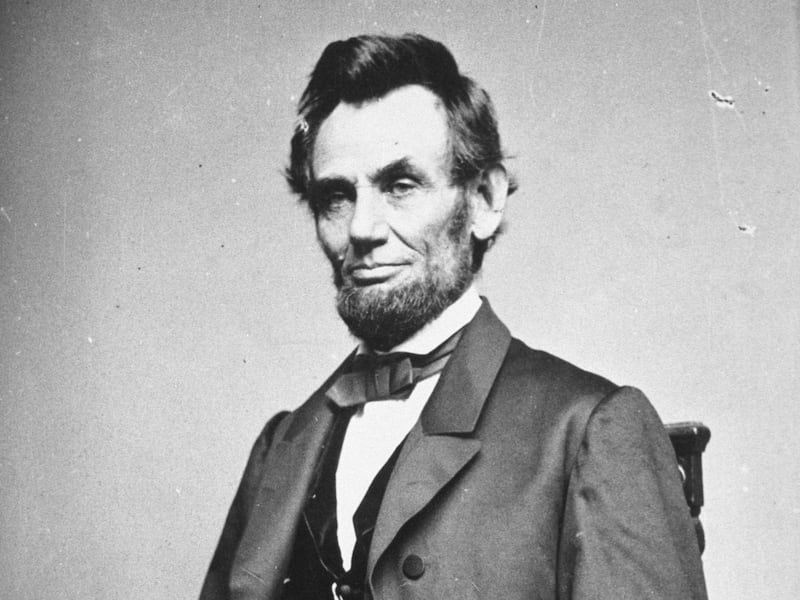’Tis the season for gratitude. Over the next week or so, we’ll hear and read a lot about the power of gratitude. We will offer thanks over our meal on Thursday and maybe even go around the table, taking turns sharing things for which we are grateful.
Then, most of us will go back to our “normal” lives, to the challenges of everyday living in a world that seems increasingly dark and depressing.
Don’t we all need some hope for better days ahead? It can be so hard to feel hope, or to feel grateful. What too many of us miss, however, is that both gratitude and hope are choices we can make. We can choose to be grateful, to be hopeful and even to find joy on the darkest of days.
Abraham Lincoln knew something of dark days. Even before the Civil War ripped the nation apart, Lincoln was not naturally predisposed to have a sunny disposition. In fact, his melancholy practically “dripped from him as he walked,” his law partner recalled. He had periods of suicidal ideation that were so strong, his friends had to remove all sharp objects from his room, and neighbors stood watch, lest he should harm himself.
Yet time and again, Lincoln chose hope. One month before he signed the Emancipation Proclamation, he sent a long message to Congress. In it, he wrote the following:
The fiery trial through which we pass, will light us down, in honor or dishonor, to the latest generation. We say we are for the Union. The world will not forget that we say this. We know how to save the Union. The world knows we do know how to save it. We — even we here — hold the power, and bear the responsibility. In giving freedom to the slave, we assure freedom to the free — honorable alike in what we give, and what we preserve. We shall nobly save, or meanly lose, the last best hope of earth.
Several months later, in the summer of 1863, he declared that the nation should observe a national day of thanksgiving, praise and prayer, inviting people to thank “the Divine Majesty for the wonderful things He has done in the nation’s behalf and invoke the influence of His Holy Spirit to subdue the anger which has produced and so long sustained a needless and cruel rebellion.”
In his second inaugural address, he said, “Fondly do we hope, fervently do we pray, that this mighty scourge of war may speedily pass away ... With malice toward none, with charity for all, with firmness in the right as God gives us to see the right, let us strive on to finish the work we are in, to bind up the nation’s wounds, to care for him who shall have borne the battle and for his widow and his orphan, to do all which may achieve and cherish a just and lasting peace among ourselves and with all nations.”
Hope has been called one leg of a three-legged stool — essential for stability in times of turmoil. Choosing hope looks forward, yes, but hope is not passive. Hope is “a choice and a force; hoping for something takes more than casting out a wish to the universe and waiting for it to occur. Hope should inspire action,” writes Dr. David Fajgenbaum.
“Hope is not naive, and hope is not an opiate. Hope may be the single greatest act of defiance against a politics of pessimism and against a culture of despair,” said Rabbi Sharon Brous in a 2016 TED talk.
A decade ago, gratitude researcher Robert Emmons wrote the following: “In the face of demoralization, gratitude has the power to energize. In the face of brokenness, gratitude has the power to heal. In the face of despair, gratitude has the power to bring hope.”
My wish for you — and myself — this holiday season and beyond, is that we can all do better at choosing gratitude, hope and joy, and that we can demonstrate “malice toward none” and “charity for all.”
Holly Richardson is the editor of Utah Policy.


